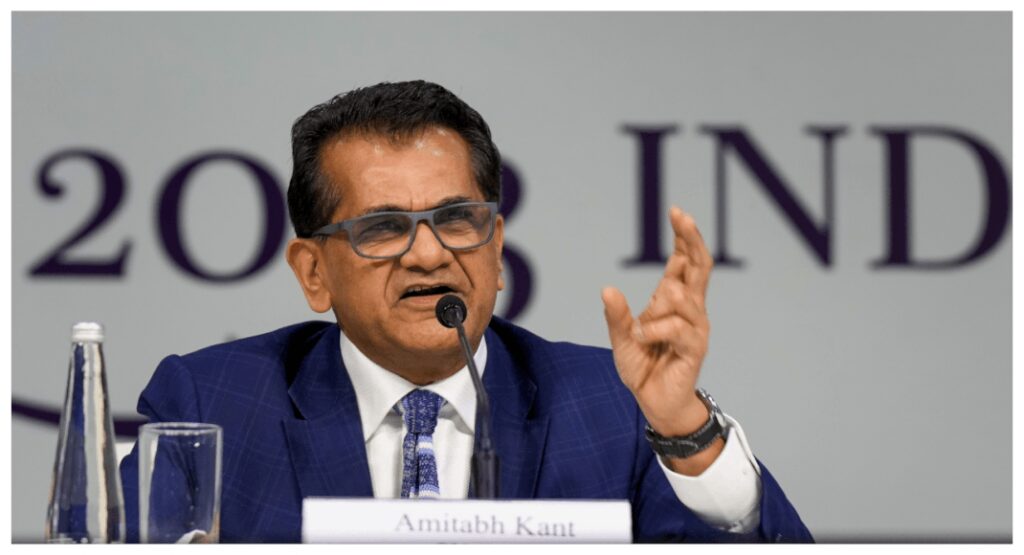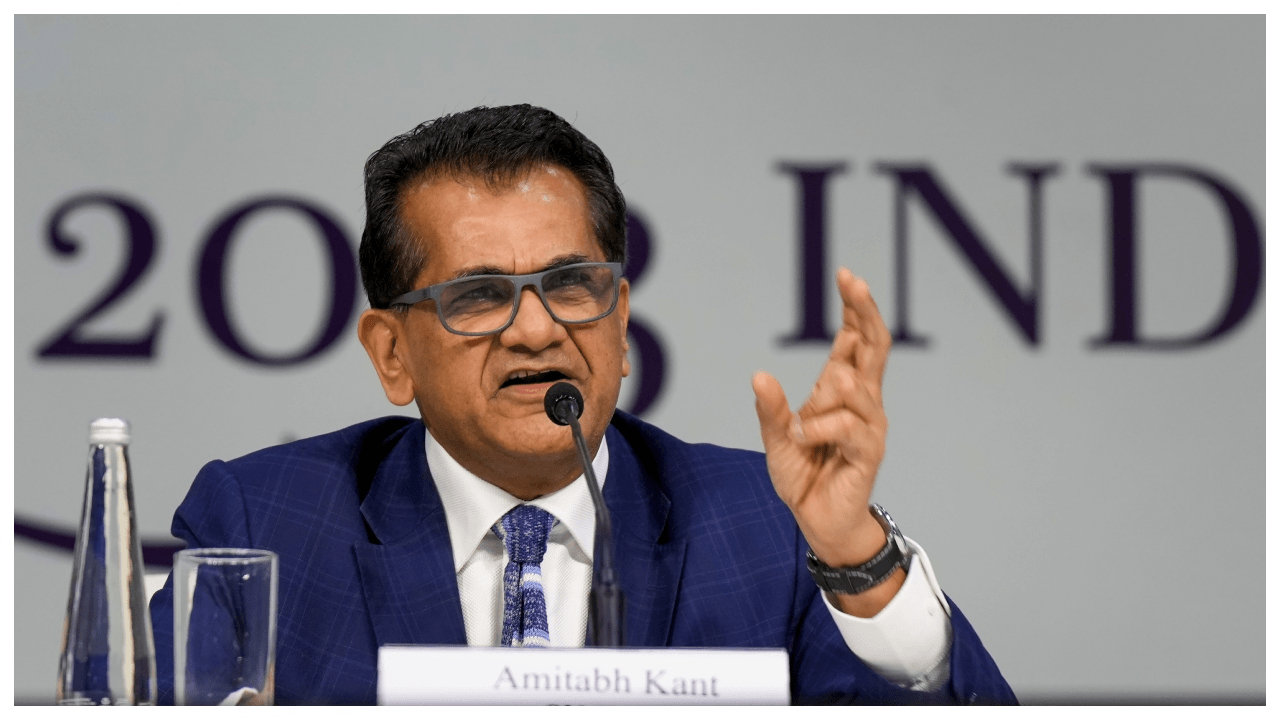[ad_1]
NEW DELHI: With less than a week to go for the start of the G20 Leaders’ Summit, and with the countries stalemated over the Russia-Ukraine issue, their sherpas took a dramatic decision. They decided to go off air and packed off their aides from the meeting room in a hotel 55km from Delhi.
This was a desperate last-ditch attempt to stitch a consensus for the leaders’ summit. A convergence on Ukraine had evaded the countries in the meetings at the level of ministers and among the sherpas with Russia stonewalling the West’s insistence to condemn Moscow’s aggression. Demands from one side had been met with countervailing pressures from the other. For instance, when the West insisted on a condemnation of Russia for threatening to use nuclear weapons as part of the communique, Moscow came up with the retaliatory push for a mention of the dropping of the bomb on Hiroshima.
Kant invoked PM to close wriggle space
There was no time to lose and the task was only getting complicated. Two important countries also took diametrically opposite positions on the climate crisis.
It was then that Indian sherpa Amitabh Kant decided to start from a clean slate, and craft a new language which, while addressing the 15 principles, would accommodate the competing postures. He was already being assisted by his counterparts from Brazil, South Africa and Indonesia and his hand got stronger because of late assistance from four other emerging markets – Saudi Arabia, Turkiye, Mexico and Argentina.
A breakthrough was still not in sight as the sherpas kept pointing to their respective “red lines” and the absence of “mandate” from their leaders to redraw them.
On Friday evening, as leaders trickled into the capital, the negotiations, which had moved to Sushma Swaraj Bhawan in the Capital’s diplomatic enclave, acquired both a sense of urgency and momentum.
The result was a draft, adopted on Saturday as a communique, which sought to “accommodate all without offending anyone”. Russia was satisfied as it had not been named. This fell short of the hardline position favoured by many in the western bloc, but was still acceptable because of reference to the UN principles forbidding “threat or use of force to seek territorial acquisition against the territorial integrity and sovereignty and political independence of any state” – a formulation which fits Russia’s conduct in Ukraine.
The criticism of the use of nuclear weapons can also be seen to be targeted at Russia. Moscow could live with it so long as it was spared specific mention.
It was then that Kant decided to close the wriggle space by saying that this was the final deal on the table. He invoked Prime Minister Narendra Modi to declare, according to sources, “The leader has seen it and we cannot go beyond this.” Brazil, South Africa and Indonesia too took the same view and it was suggested that any change in the text should be done after consultations by the leaders.
Kant was helped by the fear among the western nations of the failure of a powerful grouping at a time of geopolitical churn when China is trying to create parallel centres of power.
The US was also keen to ensure that New Delhi, a strategic ally, should secure a successful outcome under its presidency. But China wasn’t yet ready, and raised an “important bilateral issue” with the US, which was rejected, prompting China to go with the emerging nations’ bloc.
“At the end, it was the credibility and the stature of PM Modi that helped clinch the deal,” Kant had said after the declaration was adopted on Saturday.
His discussions with leaders at the Brics Summit in Johannesburg as well as the Asean Summit in Jakarta and the solid support of the emerging countries worked in India’s favour, which started with a focus to ensure that there was consensus on a strong communique so that G20 remained relevant.
This was a desperate last-ditch attempt to stitch a consensus for the leaders’ summit. A convergence on Ukraine had evaded the countries in the meetings at the level of ministers and among the sherpas with Russia stonewalling the West’s insistence to condemn Moscow’s aggression. Demands from one side had been met with countervailing pressures from the other. For instance, when the West insisted on a condemnation of Russia for threatening to use nuclear weapons as part of the communique, Moscow came up with the retaliatory push for a mention of the dropping of the bomb on Hiroshima.
Kant invoked PM to close wriggle space
There was no time to lose and the task was only getting complicated. Two important countries also took diametrically opposite positions on the climate crisis.
It was then that Indian sherpa Amitabh Kant decided to start from a clean slate, and craft a new language which, while addressing the 15 principles, would accommodate the competing postures. He was already being assisted by his counterparts from Brazil, South Africa and Indonesia and his hand got stronger because of late assistance from four other emerging markets – Saudi Arabia, Turkiye, Mexico and Argentina.
A breakthrough was still not in sight as the sherpas kept pointing to their respective “red lines” and the absence of “mandate” from their leaders to redraw them.
On Friday evening, as leaders trickled into the capital, the negotiations, which had moved to Sushma Swaraj Bhawan in the Capital’s diplomatic enclave, acquired both a sense of urgency and momentum.
The result was a draft, adopted on Saturday as a communique, which sought to “accommodate all without offending anyone”. Russia was satisfied as it had not been named. This fell short of the hardline position favoured by many in the western bloc, but was still acceptable because of reference to the UN principles forbidding “threat or use of force to seek territorial acquisition against the territorial integrity and sovereignty and political independence of any state” – a formulation which fits Russia’s conduct in Ukraine.
The criticism of the use of nuclear weapons can also be seen to be targeted at Russia. Moscow could live with it so long as it was spared specific mention.
It was then that Kant decided to close the wriggle space by saying that this was the final deal on the table. He invoked Prime Minister Narendra Modi to declare, according to sources, “The leader has seen it and we cannot go beyond this.” Brazil, South Africa and Indonesia too took the same view and it was suggested that any change in the text should be done after consultations by the leaders.
Kant was helped by the fear among the western nations of the failure of a powerful grouping at a time of geopolitical churn when China is trying to create parallel centres of power.
The US was also keen to ensure that New Delhi, a strategic ally, should secure a successful outcome under its presidency. But China wasn’t yet ready, and raised an “important bilateral issue” with the US, which was rejected, prompting China to go with the emerging nations’ bloc.
“At the end, it was the credibility and the stature of PM Modi that helped clinch the deal,” Kant had said after the declaration was adopted on Saturday.
His discussions with leaders at the Brics Summit in Johannesburg as well as the Asean Summit in Jakarta and the solid support of the emerging countries worked in India’s favour, which started with a focus to ensure that there was consensus on a strong communique so that G20 remained relevant.
[ad_2]
Source link











More Stories
We can’t wait to face India in the final: Pat Cummins | Cricket News
Railways plans 3,000 additional trains in next 4-5 years to minimise number of waitlisted tickets | India News
Faridabad: Man dies after ‘falling from hotel room window’ while partying with friends